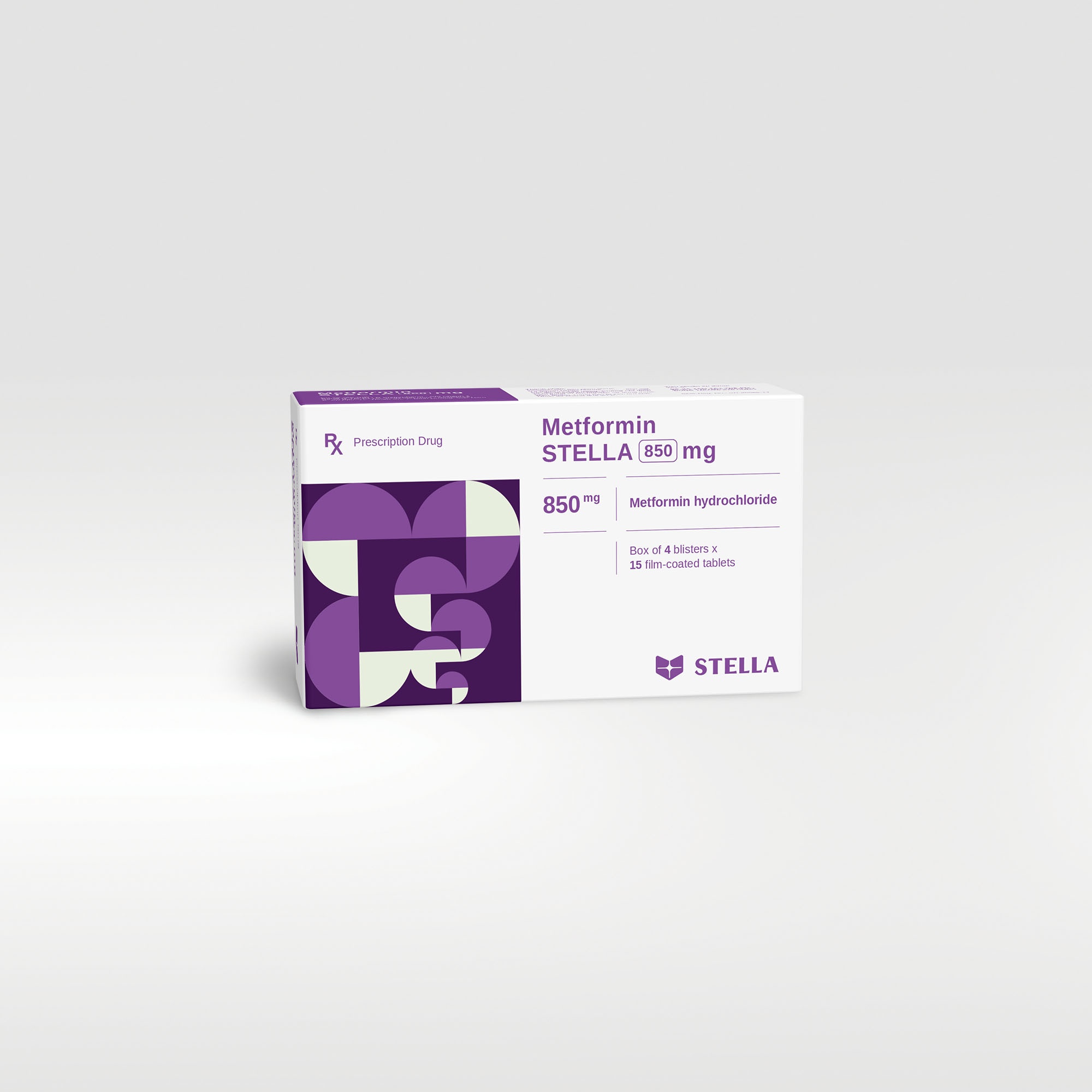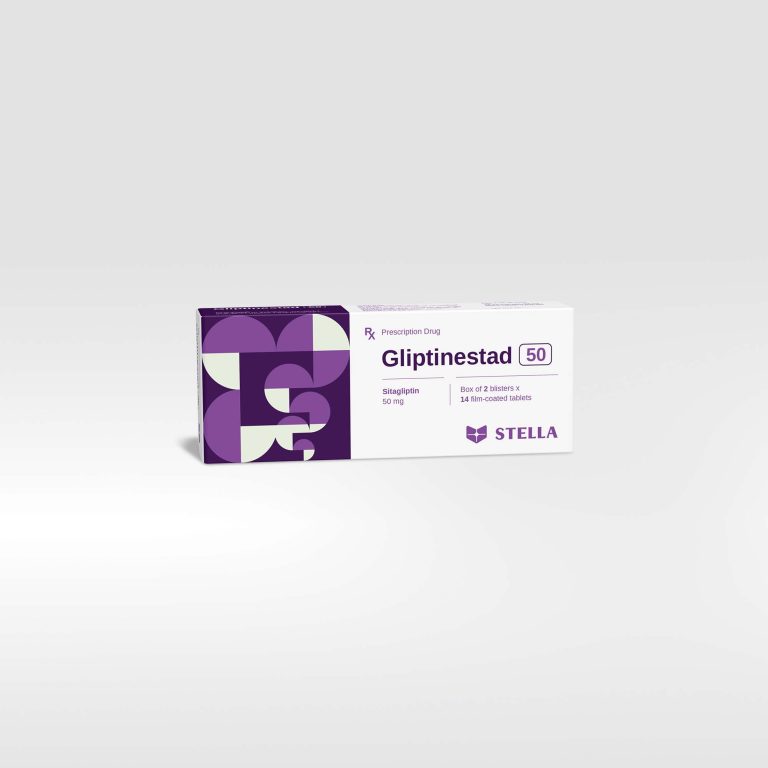Indications
- Treatment of type 2 diabetes mellitus, particularly in overweight patients, when dietary management and exercise alone does not result in adequate glycaemic control.
- In adults, metformin may be used as monotherapy or in combination with other oral antidiabetic agents or with insulin.
- In children from 10 years of age and adolescents, metformin may be used as monotherapy or in combination with insulin.
- A reduction of diabetic complications has been shown in overweight type 2 diabetic adult patients treated with metformin as first-line therapy after diet failure.
Dosage
Adults with normal renal function (GFR ≥ 90 ml/min)
- Monotherapy and combination with other oral antidiabetic agents
The usual starting dose: 500 mg or 850 mg metformin, 2 or 3 times daily given during or after meals.
After 10 to 15 days the dose should be adjusted on the basis of blood glucose measurements. A slow increase of dose may improve gastrointestinal tolerability.
The maximum recommended dose of metformin is 3 g daily, taken as 3 divided doses.
If transfer from another oral antidiabetic agent is intended: discontinue the other agent and initiate metformin at the dose indicated above.
- Combination with insulin
Metformin and insulin may be used in combination therapy to achieve better blood glucose control. Metformin is given at the usual starting dose of 500 mg or 850 mg 2 or 3 times daily, while insulin dosage is adjusted on the basis of blood glucose measurements.
Elderly
- Due to the potential for decreased renal function in elderly subjects, the metformin dosage should be adjusted based on renal function. Regular assessment of renal function is necessary.
Renal impairment
- A GFR should be assessed before initiation of treatment with metformin containing products and at least annually thereafter. In patients at an increased risk of further progression of renal impairment and in the elderly, renal function should be assessed more frequently, e.g. every 3 – 6 months.
- GFR 60 – 89 ml/min: Total maximum daily dose 3000 mg to be divided into 2 -3 daily doses. Dose reduction may be considered in relation to declining renal function.
- GFR 30 – 59 ml/min: Factors that may increase the risk of lactic acidosis should be reviewed before considering initiation of metformin. The starting dose is at most half of the maximum dose.
- GFR < 30: Metformin is contraindicated.
Paediatric population
- Monotherapy and combination with insulin:
Metformin can be used in children from 10 years of age and adolescents.
The usual starting dose is 500 mg or 850 mg metformin once daily, given during or after meals.
After 10 to 15 days the dose should be adjusted on the basis of blood glucose measurements. A slow increase of dose may improve gastrointestinal tolerability. The maximum recommended dose of metformin is 2 g daily, taken as 2 or 3 divided doses.
Discontinuation for iodinated contrast imaging procedures
- Discontinue metformin at the time of, or prior to, an iodinated contrast imaging procedure in patients with an eGFR between 30 and 60 ml/minute/1.73 m2, in patients with a history of liver disease, alcoholism, or heart failure, or in patients who will be administered intraarterial iodinated contrast. Re-evaluate eGFR 48 hours after the imaging procedure, restart metformin if renal function is stable.
Usage
Orally administered with or after meals.











